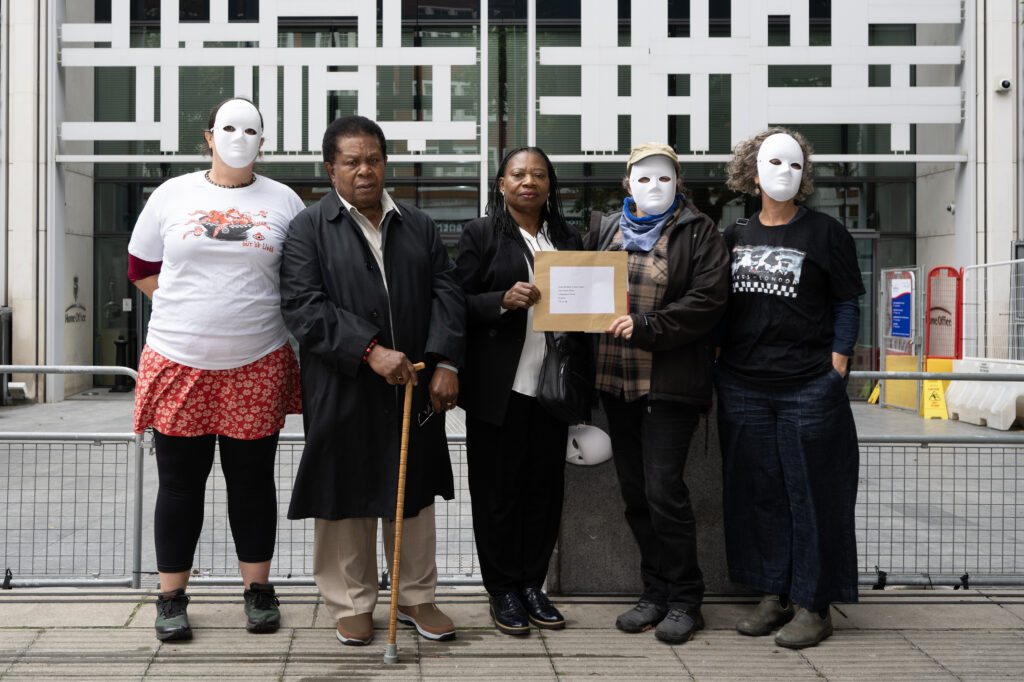Campaigners due to give evidence at the Spycops Inquiry have called on the Home Secretary to extend the current time limit for the hearings.
Women deceived into long-term relationships with undercover officers, family justice campaigners and other victims of ‘spycops’ delivered a letter to the Home Secretary, Yvette Cooper, on Monday asking her to lift the arbitrary December 2026 end date imposed by her predecessors. They said this time limit is ‘plunging the inquiry into crisis just as it is beginning to uncover the truth.’
Claimants and campaigners from groups including Police Spies Out of Lives, the Blacklist Support Group and the Campaign Opposing Police Surveillance said that the current timescales were causing ‘chaos and unfairness’.
They have requested a meeting with the Home Secretary, saying: ‘This meeting is needed because the non-police, non-state core participants are concerned that the inquiry is at crisis point, and that the result of this is that a significant burden is being placed on many of those who have already suffered significantly at the hands of the state.’
Theresa May, then Home Secretary, announced the inquiry in March 2015 following revelations about the infiltration of the Stephen Lawrence campaign, with the aim to review undercover policing practices going back 50 years.
As well as spying on family justice campaigns, undercover police officers have also been found to have deceived women into sexual relationships, with some even having children, and using deceased children’s identities without the knowledge of the families.
The next batch of hearings are due to start on 30 September, and will be looking at the, now disbanded Special Demonstration Squad (SDS) and its actions from 1983 to 1992.
The SDS ran from 1968 to 2008 and was deployed to infiltrate political and activist groups, with the intention of gathering intelligence to assist in public order policing.
An interim report from the inquiry, published last year, found the SDS undercover unit was ‘unjustified and undemocratic’.
The chair of the inquiry, Sir John Mitting said that the ‘principal, stated purpose’ of the SDS was to ‘assist uniformed police to control public order in London’. ‘Long-term deployments into left-wing and anarchist groups did make a real contribution to achieving this end, even though this was or could have been achieved to a significant extent by other, less intrusive, means,’ he wrote.
‘The question is whether or not the end justified the means set out above. I have come to the firm conclusion that, for a unit of a police force, it did not; and that had the use of these means been publicly known at the time, the SDS would have been brought to a rapid end.’
Jessica from Police Spies Out of Lives said this week: ‘There were massive delays at the start of this investigation. They spent nine years and over £82 million mainly on undercover officers’ applications for anonymity and State applications for secrecy and that process is still ongoing. Now the victims in this Inquiry are being squeezed up against arbitrary deadlines. Witnesses are not being given time to view the files before being asked to give evidence and that is causing real distress. The disparity in time given to us and to the state is completely unfair.’







